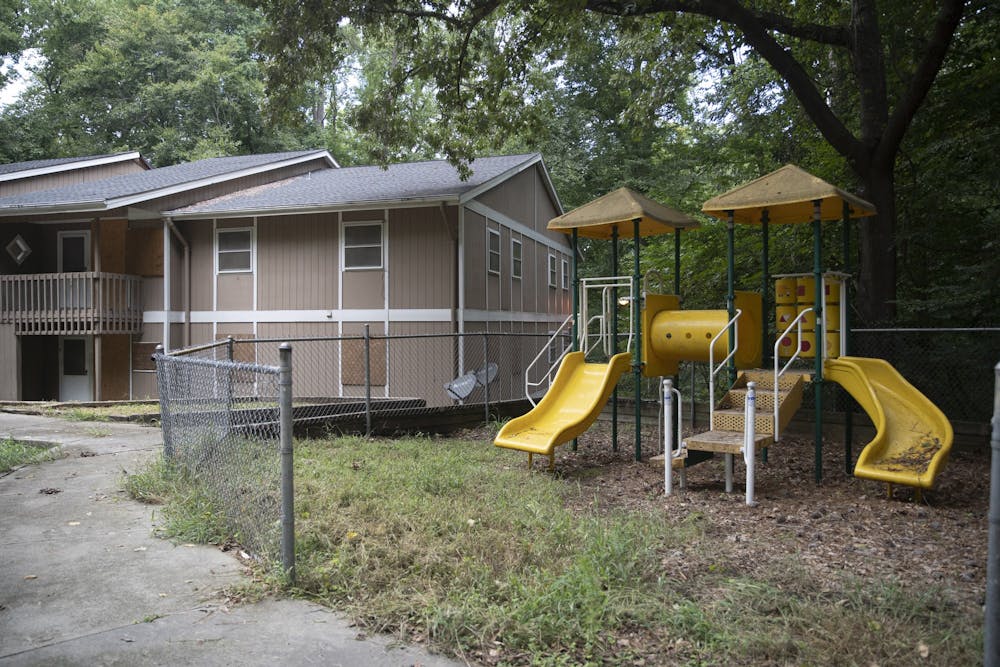A year-and-a-half after the Town of Chapel Hill designated public housing community Trinity Court for redevelopment, the apartments still sit vacant.
A chain blocks off the road leading to the community, whose windows are boarded up. Refrigerators and furniture are strewn about the property and Trinity Court is more of a home to roaming deer than it is to Chapel Hill’s housing-insecure residents.
In January of 2019, the Town of Chapel Hill held a public meeting on the Rental Assistance Demonstration Program, which is intended to improve local public and affordable housing properties with assistance from the Department of Housing and Urban Development. Trinity Court was designated as the first site for redevelopment due to structural damage that rendered it uninhabitable.
The community was built in the Northside neighborhood in 1975. With its 40 units, it’s one of the largest of the Town’s 13 public housing communities. Trinity Court was vacated in 2018 due to damages from leakage and mold — a common problem in the Town's older public housing units — and subsequently slated for redevelopment under a Rental Assistance Demonstration Conversion.
Redevelopment, however, is no quick process. Chapel Hill Town Mayor Pro Tem Michael Parker said construction on the project is not set to begin until 2022. After weighing various options for redevelopment, the Council decided the best course of action was to demolish and rebuild Trinity Court, ideally with more than 40 units.
“We are committed to doing (redevelopment) at the highest standard that we possibly can,” Parker said. “Unfortunately, sometimes it takes a lot longer than any of us would like.”
Implementing Rental Assistance Demonstration will allow the Town to integrate private and public funding to redevelop Trinity Court through partnership with a developer, preferably one who has experience with affordable housing, Loryn Clark, executive director of the Chapel Hill Housing and Community Department, said.
Currently, 296 units are occupied in Chapel Hill, while 251 families were waiting for public housing as of Aug. 31. Movement in and out of units is minimal, as only a handful of units open each year, Clark said.
Although the COVID-19 pandemic has exacerbated the housing insecurity crisis nationwide, Clark said the length of the waiting list has not changed much. She said the Emergency Housing Assistance fund, administered by Orange County, provides relief to those experiencing housing insecurity because of the pandemic, and further referenced a moratorium on evictions.




